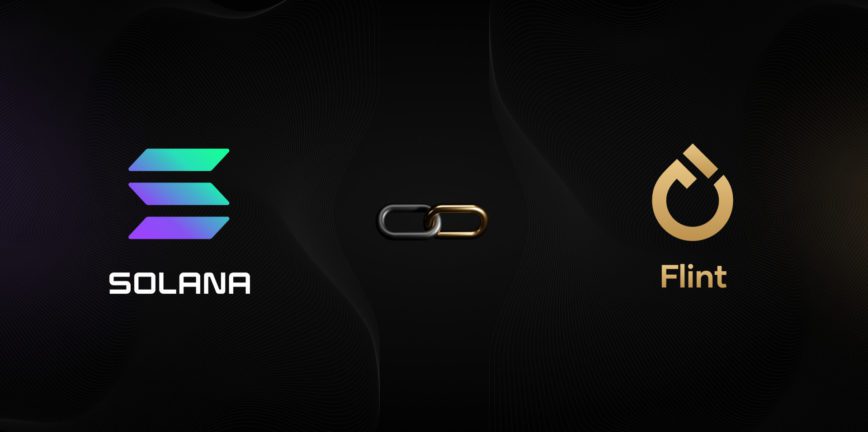Flint Launches High Annual Crypto Returns On Solana Without the Volatility
Flint plans to deploy $500 million onto decentralized finance applications on Solana over the coming years.

Share this article
Flint, a passive income platform for stablecoins, is launching its beta. It hopes to bring an NFT store eventually.
Earn Yield on Stablecoins
Passive crypto investment gateway Flint will enter its beta stage to let anyone easily access passive returns on their stablecoins. Returns can be as high as 13% per annum, and there are no specific time requirements for locking up funds.
Passive income is a dream for many cryptocurrency enthusiasts, yet it remains challenging to achieve. Flint is here to solve that problem by giving investors exposure to crypto markets without the volatility. By leveraging DeFi and stablecoins, Flint is able to generate up to 13% returns per year, yet the service doesn’t require the user to own any cryptocurrency directly. Instead, users can enter using Indian rupees to get exposure to the decentralized finance (DeFi) yields at times of historic low-interest rates.
Flint generates returns by making use of stablecoins only such as UST and USD Coin. Since stablecoins are pegged to $1, it reduces the price volatility for investors who don’t have the stomach for it. Additionally, Flint will invest the stablecoins in decentralised finance protocols to generate returns on behalf of the platform’s users.
An added bonus of using Flint is the option for users to withdraw funds at any time without any fees. Entering and exiting a position is seamless, creating a new gateway to the cryptocurrency industry for those who do not hold crypto assets yet.
Furthermore, Flint aims to deploy up to $500 million in capital across various decentralised finance protocols on Solana over the next three years. That step is part of a process to establish a thematic basket of coins on Solana and the introduction of Flint’s NFT store on the network. In addition, the company aims to use Solana for foreign remittance and Flint Pay (P2P and P2M crypto payments) and establish Solana’s native stablecoins as the primary asset for yield generation through Flint.
During the beta test – which can accommodate up to 100,000 users – there is also an exciting referral program, as users earn additional returns on their deposits for specific intervals. Flint reduces risk by choosing the protocols for you, using stablecoins over more volatile assets and imposes no lock-in requirements – it is a straightforward way to explore passive revenue through cryptocurrency, even if one doesn’t own crypto assets or stablecoins.
Entering the cryptocurrency space remains a key hurdle for most consumers. The risk of losing money due to price fluctuations or scams, complex research requirements to invest in decentralized finance, and the absence of consumer-first interfaces to access investment opportunities can be an intimidating user experience. Through its core product innovation, Flint combines fintech in the front-end with crypto in the back-end to create an enticing consumer-facing investment solution accessible through a mobile application.
Flint co-founder Anshu Agrawal adds: “We are targeting close to 500 million users globally across various customer segments, who are crypto-curious, have idle cash or stable coins, and are chasing higher yields than conventional investments. The best part is that Flint achieves all of these for our users without them having to break their heads on active crypto trading or price movements.”
Solana Foundation Advisor, Akshay BD added: “We’re incredibly excited about startups like Flint leveraging the Solana network to offer valuable consumer products in the mobile-first experience users are used to. Crypto is increasingly finding a place in every investor’s portfolio, and stablecoin yield may offer a great starting point for most investors entering the space.”
Flint will roll out its crypto-focused passive income offering to India first, where users can deposit rupees. A global rollout will occur gradually as the team introduces support for more fiat currencies and stablecoins. The first network for supporting stablecoins will be Solana, a blockchain renowned for its speed, low transaction costs, and high efficiency. Providing stable returns on stablecoins on Solana paves the way for optimizing returns at controlled risk on SOL.
Share this article
